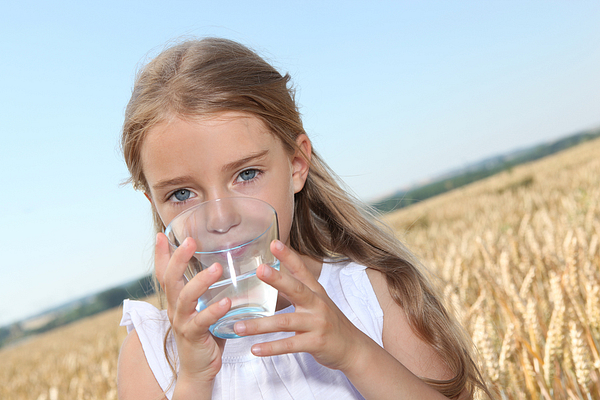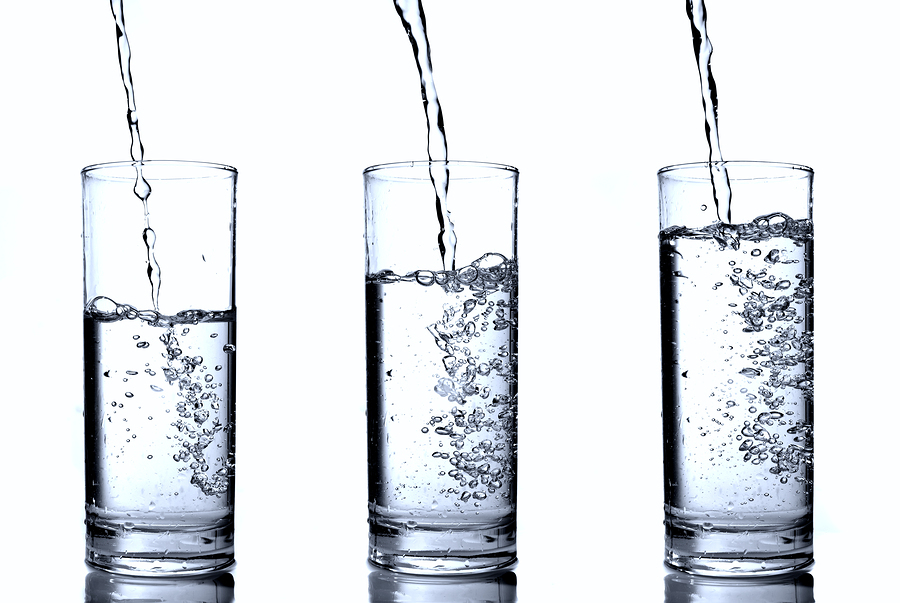Welcome to our third edition in our Water Feature (again, what Pun?)
We have discussed why we need to drink water, now we are going to look at different types of water and how much we need to drink.
Types of Water
There are many different types of water; some have more benefits than others.
Tap Water: Tap water is often very good quality, except that it is often chlorinated or fluoridated. Now there are also many man-made chemicals and pollutants in our water supply to content with.
Bottled Water: Bottled water is really, for the most part, shameful. The quality is no better than tap water but sold at ridiculous prices. Were you are that Bottled Water is more expensive per ml than Petrol?
Purified Water: Another way to say filtered water. Water isolated from other substances
Filtered Water: Water passed through materials such as carbon to remove substances. Filters have different sizes 0.01 microns are the size of the smallest viruses. Most robust filters are 0.02 microns. Many basic filters don’t remove nearly all contaminants.
Distilled Water: Distillation is the process in which water is boiled, evaporated and the vapour condensed. Stanley Burroughs calls distilled water “cooked”, or devitalized.
Ionized Water:Water is passed through systems to create a similar effect to what happens to water when it passes over rocks in a stream. The nature of this type of water is said to be alkalizing to the body. Most agree that an alkaline body is a healthy body.
Alkaline Water: Another name for Ionized water. The two terms are synonymous.
Ozonated Water: Water that has an extra atom of oxygen, said to have healing potential.
Mineral Water: Water containing minerals or other dissolved substances that alter its taste or give it therapeutic value..
Soft Water: Water that contains little or no calcium or magnesium metal. The term is usually related to hard water, which does contain significant amounts of these ions. Demineralized water is said to be soft.
Hard Water: high mineral content – mainly calcium and magnesium ions.
[Learn More http://themastercleanse.org/pure-water/]
Ideally we are looking for pure water that is rich in vitamins and has no added viruses, bacteria or drugs. Here is my definition of pure water: Water that is free from chemicals, that has a pH Level of 7.0 and carries with it a natural balance of trace minerals.
Be selective in your bottled water choice, as sometimes water that sits too long in plastic bottles can absorb plastic substances, which are not healthy to drink.
How Can We Have Pure Water?
Pure water is often described as the Loch Ness Monster of the aquatic world. By that I mean, it’s seen or documented about as many times as the Yeti or Big Foot. However, pure water does exist and there certain places you can get it.
Whatever our water’s quality, it is important to check the source of the water we drink. Unfortunately, water authorities often have to use stacks of chemicals to disinfect our tap water, added to that, tap water is filled with pollutants and whatever else is in the plumbing, which the water often pick up as it travels to our homes.
For best results, a water filter such as Aquasana’s can be used to filter out all the rubbish so that only the good stuff remains in the water we drink.
How much water should we drink?
While the daily recommended amount of water is eight cups per day, not all of this water must be consumed in the liquid form. Nearly every food or drink provides some water to the body. The quality of that water is another matter.
Drinking Habits to Keep You Healthy
Have you ever wondered why sometimes you go to bed feeling fine and the next day you wake up feeling terrible? Even when you haven’t been drinking at the pub?
Well, one cause is that your body might be dehydrated. At night while we sleep, our body is hard at work flushing out toxins from our system. Water is required to carry these toxins to organs that have the job of breaking down and disposing of these harmful substances. To do this, our body requires adequate amounts of water. If there is not enough water in our system when we go to sleep, guess what? We wake up and start the day dehydrated, often feeling terrible, often with a throbbing headache.
For this reason it is a good tip is to have a glass of water or two to flush your body before going to sleep and also to drink about 500ml first thing in the morning, before starting the day.
Understanding how our bodies function; while giving it a helping hand by establishing healthy habits like these can go a long way to maintain our health and vitality.
Do you have any useful water tips or ways to ensure you get the right amount of water you need? Feel Free to Share Below.
Comments
You might be interested in:
Join us as we dive into our second instalment on w...
This Incredible ad might have you reaching for...
What Makes You Feel Loved and Appreciated? A...



